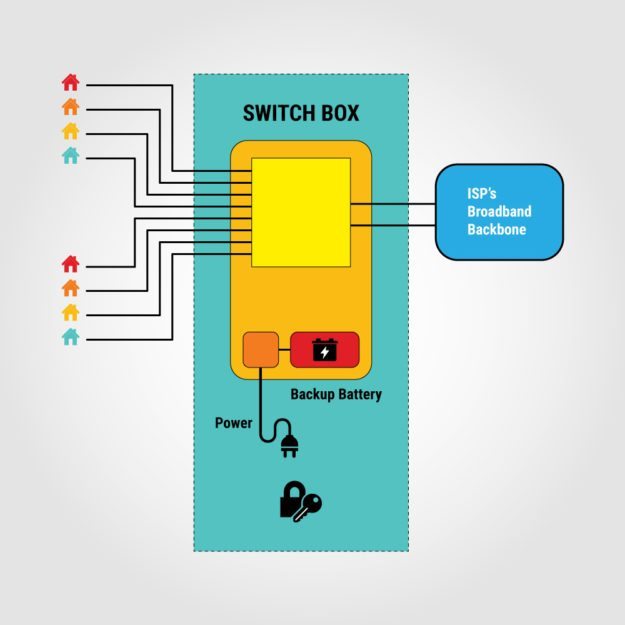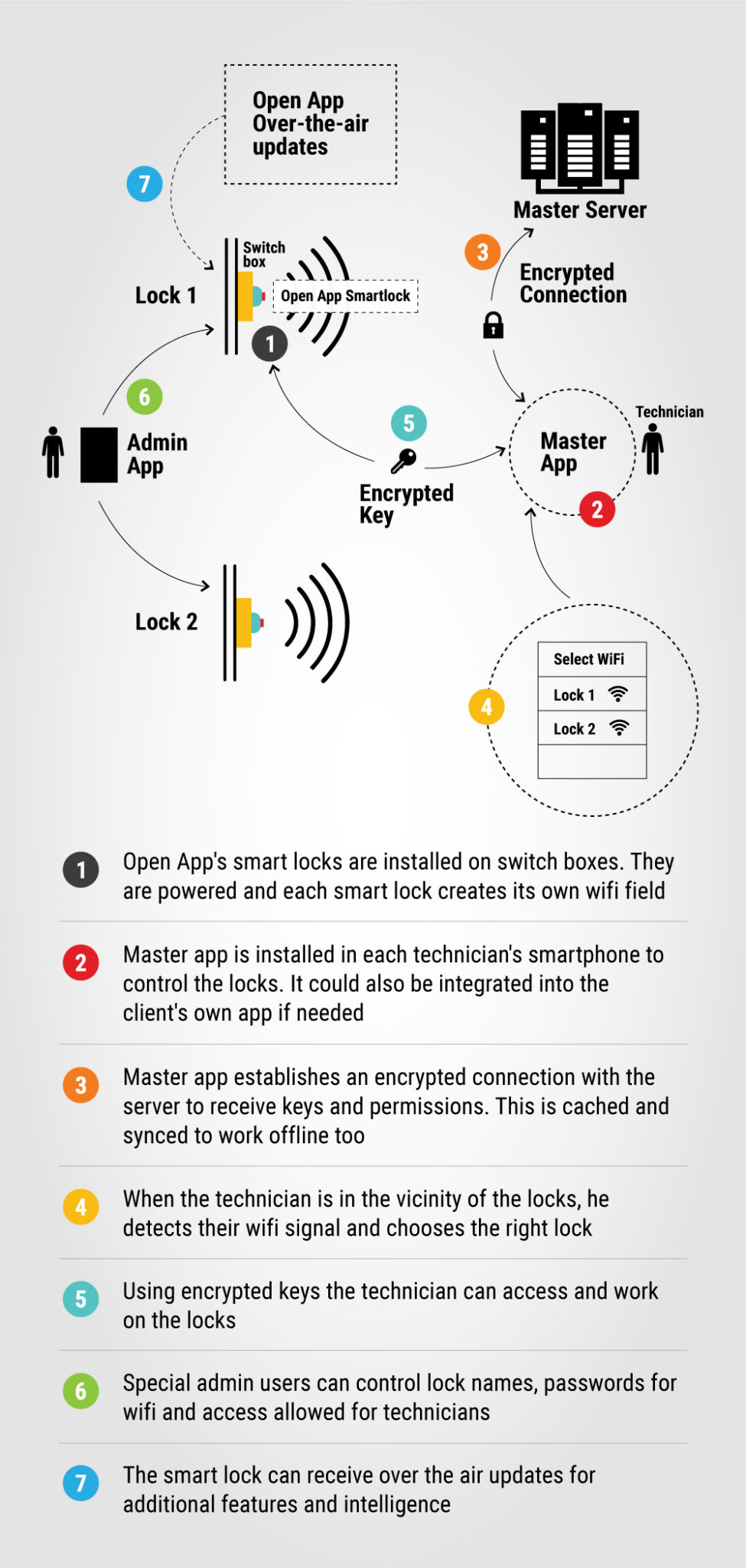Story Highlights
- This is one of the biggest smart device B2B contracts in the country till date
- Open App's smart lock is basically digitally encrypted keys accessible through smartphones
- This may be the start of creation of larger IOT businesses and an industrial IOT stack in India
For want of a ‘key’ to secure its nearly 6.5 lakh internet switch boxes across south India (the backup batteries in these boxes are often pilfered), one of India’s leading internet service providers (ISP) was fighting a losing battle.
The situation was fast turning into a nightmare for the ISP, which was struggling with skyrocketing costs, as well as its customers, who were disgruntled with the shoddy service.
One of the biggest smart device B2B contracts in the country till date, this may just herald the arrival of industrial IOT in India
The desperate company found a solution in smart locks from OpenApp, an Indian startup that makes internet of things (IOT)-based smart locks for enterprises.
The result: A mega $2 million contract for OpenApp for deploying 1,00,000 units of smart locks on the ISP’s internet switch boxes. One of the biggest smart device B2B contracts in the country till date, this may just herald the arrival of industrial IOT in India.

Why would batteries be pilfered?
You must have noticed when you lose internet connectivity at home and call for a technician to fix the problem, the latter hops back out to check your ‘switch box’ and comes back — usually in a jiffy — saying the connection’s been restored.
That’s because most internet downtimes are due to switch box issues rather than larger problems at the ISP or infrastructure end (like what happened in the aftermath of the recent cyclone in Chennai).
Often, it’s simply that the switch box has no power and the backup battery that should’ve kept the switch running in case of a power failure has been pilfered
The internet switch box is the gateway to your internet service. Often, it’s simply that the switch box has no power and the backup battery that should’ve kept the switch running in case of a power failure has been pilfered.
The math behind backup battery pilferage is simple: The batteries costs anywhere between Rs 700-800 in the market. Technicians who work on the switch boxes are paid about Rs 7,000-8,000 a month. By making off with 10 batteries a month, a technician can essentially double his salary.
For ISPs, these losses quickly mount up. Losing 500 batteries a month (it appears to be much worse in reality) notches up an additional Rs 4 lakhs in cost for the company. The bigger damage is the loss of customer trust with every failed connection and the time taken to fix it.
Sure, the switch boxes are protected by lock and key. But, managing lakhs of physical keys is an onerous task bound to result in operational inefficiencies and failures. More importantly, physical keys are easy to replicate.
Unlocking a new IOT market
OpenApp’s smart lock solution saved the day for the ISP. The smart lock, which is basically digitally encrypted keys accessible through smartphones, helped the ISP overcome the complex key management problem. The smart lock also acts as a WiFi router, emitting it’s own WiFi signal that enables a smartphone in a remote location to connect to its network and then work on it.

“Smart locks have huge market potential in India as businesses are struggling with physical security management,” says Gotama Gowda, founder and CEO of Open App. The startup is already working with another large ISP to deploy a similar solution, he added.
The smart lock market is a space where large lock providers are just beginning to enter globally. In India, Godrej, which owns a whopping 50% of the market share in organised lock segment, has made some initial forays into the segment. But, incumbents are unlikely to have a significant advantage as the technology required to build innovative smart lock products requires an altogether different approach and philosophy, thus making it an even playing ground for startups.
According to Gotama, the locks for the ISP will soon have a battery monitoring system that provides intelligence that will be charged as a service. This is where the market potential expands significantly.
The layer of intelligence that smart devices can provide is the much larger (and more disruptive) market that IoT device providers are looking to crack open
Smart locks will likely be the entry point for the creation of larger IOT-centred businesses and an industrial IOT stack in India. For instance, OpenApp is working with the second largest thread manufacturer in the world to implement an intelligent lock system that secures the machines in their factory in India. Besides access control, the solution will also provide intelligence around the health of the machines and their status.
These solutions are just the beginning. The layer of intelligence that smart devices can provide is the much larger (and more disruptive) market that IoT device providers are looking to crack open.
Subscribe to FactorDaily
Our daily brief keeps thousands of readers ahead of the curve. More signals, less noise.
To get more stories like this on email, click here and subscribe to our daily brief.
Disclosure: FactorDaily is owned by SourceCode Media, which counts Accel Partners, Blume Ventures and Vijay Shekhar Sharma among its investors. Accel Partners is an early investor in Flipkart. Vijay Shekhar Sharma is the founder of Paytm. None of FactorDaily’s investors have any influence on its reporting about India’s technology and startup ecosystem.








